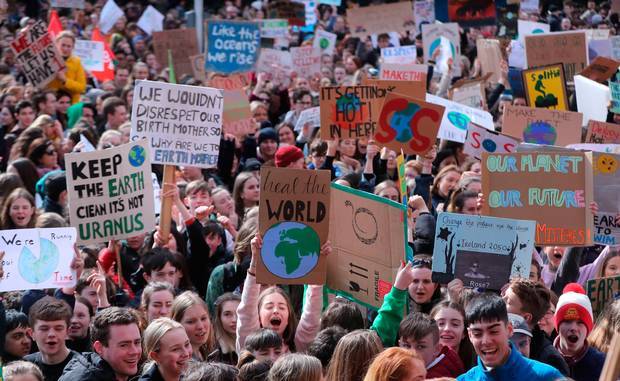The Impacts of Climate Change on South Asian Women

Of the 750 million South Asians affected by at least one climate-related disaster in the last two decades, women have been disproportionately impacted. According to a recent report by the Climate Action Network South Asia, women can work up to 12 to 14 hours of agricultural work a day while caring for their families and gathering natural resources for their households, and are therefore on the front lines of the effects of climate change.
Founder of the women’s rights organization Badabon Sangho, Lipi Rahman, works with fisherwomen in the Coastal Bend area of Bangladesh and has seen firsthand the effects of climate change on this population.
“Salinization [in Bangladesh] causes people to not have fresh drinking water, and farmers cannot produce crops,” Rahman said. “A lot of male farmers leave the area because they do not have much of an earning or income and sometimes don’t come back. Then, women are left behind to look after their children or engage in another job, where they might not receive a fair wage.”
Not only is it an overall health risk for families in the area to consume salt water, but these effects of a warming climate also leave fisherwomen susceptible to more violence as they have to work longer hours daily to catch fish.
“Officials have been recognizing [women] and try to provide support for all fisherfolk, but with a patriarchal mindset, people don’t usually think women can do the same as male farmers,” Rahman said. “Now that mindsets are changing, women are getting more support, but compared to the damage from climate change, this support does not always work.”
Meera Khanna, the co-founder of Every Woman Treaty and executive vice president of Guild For Service, has worked with women in India, specifically widows, at local and national levels to run shelter homes, family counseling centers, and schools for conflict-affected children. Khanna described similar situations in which women experience the effects of climate change on a daily basis.
“When water resources are drying up, women are walking more and more in search of water, which means they are also susceptible to violence because they are moving away from their community or village,” Khanna said. “Their health also suffers because they are walking long distances under the sun carrying heavy buckets of water.”
When floods or earthquakes occur, women, especially those in a lower socioeconomic class, are less likely to have the technology to see warning signals, Khanna said. Then, when women leave their homes after disasters and are placed in displacement camps, they face further vulnerability to sexual violence.
“Any crisis, whether [a] man-made disaster or an unplanned climate disaster, affects women disproportionately,” Khanna said. “This is because their access to knowledge, access to resources, mobility — all that is compromised by their gender.”
Adding to the uneven nature of a warming climate, some South Asian women must shoulder the posthumous debt of their husbands.
Sagar Dhara, a Hyderabad-based climate expert and former U.N. environmental engineering consultant, spoke on farmer suicides, which have happened frequently in Indian states such as Andhra Pradesh and Maharastra.
“[My researchers] were interviewing one family where the woman said her husband committed suicide because there were two years of continuous rainfall shortage and they had taken loans and they could not pay them back,” Dhara said. “The money lender comes and says to her ‘Give me the money’ and then says if you can’t pay back the money, then you [move].”
Rahman said the world needs to continue talking about how much women’s everyday lives are changing as a result of climate change, otherwise, their situation is normalized.
“I think people should know we have to do something because these [women] are very hard to reach,” Rahman said. “When we go to them and talk to them, they think this is natural and that this is their life.”
More articles by Category: Environment
More articles by Tag: Climate change



























